Cameroon’s Promise and Perils: A Journey for African Unity Through Beauty and Bureaucracy
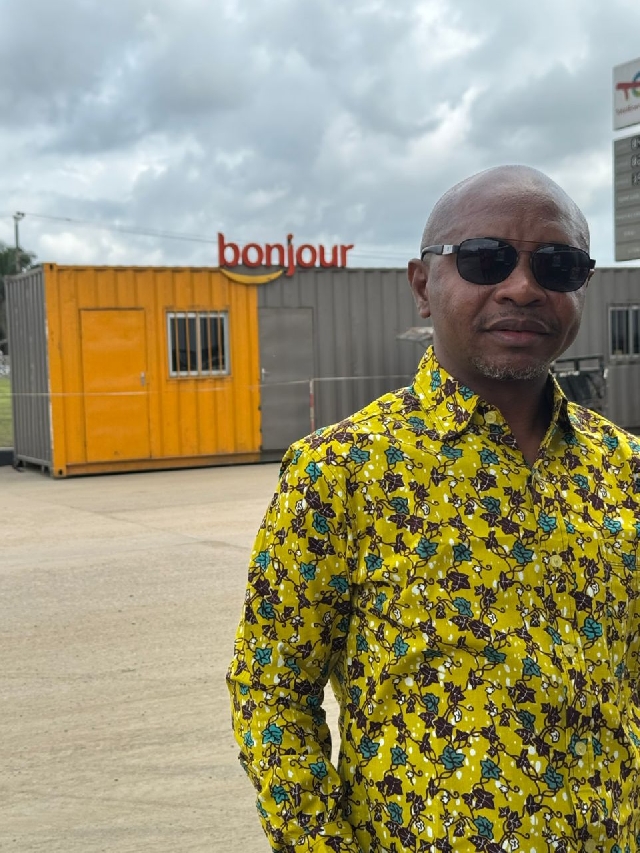 Ras Mubarak, Former Ghanaian Parliamentarian and Leader of the Trans-African Tourism and Unity Campaign
Ras Mubarak, Former Ghanaian Parliamentarian and Leader of the Trans-African Tourism and Unity Campaign
Traveling by road to Cameroon as an African is a journey that weaves together the vibrant soul of the country with the exasperating challenges that underscore the urgent need for visa-free travel across the continent.
Cameroon, often called “Africa in miniature,” boasts breathtaking landscapes, rich cultural diversity, and the warm hospitality of its people. Yet, the bureaucratic hurdles, inadequate infrastructure, and corrupt practices at some of its borders —vividly illustrated by the Trans African Tourism and Unity campaign’s experience at the Ekok border in August 2025—highlight why countries like Cameroon are precisely the reason a visa-free Africa is essential.
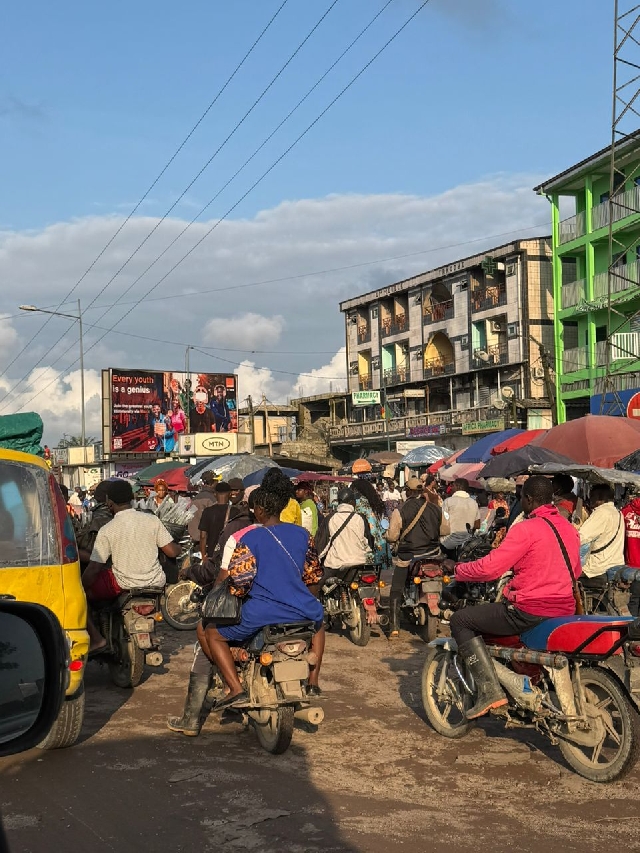
The artificial borders drawn in 1884–1885 by colonial powers, such as those separating Cameroon from Nigeria, split tribes and families, disrupting cultural ties and fostering division. These borders, like those between Ghana and Togo, were designed to fragment African unity, making campaigns like ours all the more critical.
Cameroon’s Beauty and Promise
Cameroon’s allure is undeniable. From the lush rainforests of the Dja Faunal Reserve to the majestic Mount Cameroon, the highest peak in West Africa, the country’s landscapes are as diverse as its 250+ ethnic groups. Cities like Yaoundé and Douala pulse with urban energy, while coastal Limbe offers serene beaches.
The vibrant city of Kumba, nestled in the Southwest Region, captivates with its mountainous terrain and lush, fertile lands, reminiscent of Ghana’s Volta and Eastern Regions. In Kumba, rolling hills and rich soils support bountiful agriculture—yams, plantains, cocoa, and maize thrive, much like in Ghana’s breadbasket regions. The bustling markets and lively streets of Kumba, filled with the chatter of traders and the aroma of street food, evoke a sense of home for me, blending familiarity with Cameroon’s unique cultural flair.
The Enugu-Bamenda Highway, a 443km lifeline connecting Nigeria to Cameroon, symbolizes the nation’s potential as a hub for regional trade and unity. This infrastructure has transformed border communities like Ekok, boosting markets, improving access to education, and providing potable water, particularly benefiting women traders.
Cameroon’s efforts to resolve border disputes with Nigeria, with plans to finalize demarcation by the end of 2025, further signal its commitment to regional harmony.
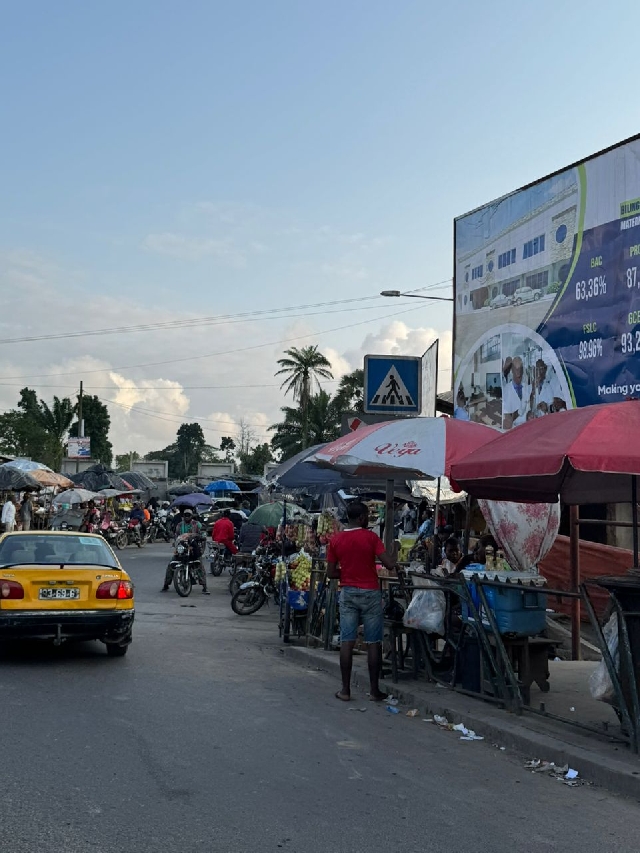
The warmth of Cameroon’s people is its greatest asset. Most Cameroonians greet travelers with genuine smiles and politeness, embodying the African spirit of love, respect and honor. Whether it’s a vendor in Kumba offering directions or a family in a rural village sharing a meal, this hospitality makes Cameroon a natural home for visitors.
The Case for Visa-Free Travel
The artificial borders established during the 1884–1885 Berlin Conference, which carved up Africa without regard for ethnic or cultural ties, continue to haunt the continent. Cameroon’s border with Nigeria, like Ghana’s with Togo, splits communities like the Efik and Ejagham, forcing families to navigate visa regimes and border posts to maintain ties.
These colonial lines, designed to weaken African unity, are why the Trans African Tourism and Unity campaign advocates for visa-free travel. A united Africa, as envisioned by the African Union’s Agenda 2063, would restore cultural connections and boost intra-African trade, which currently languishes at 12% of the continent’s total, compared to over 60% in the European Union.
However, the vision of visa-free travel hinges on two critical pillars: professional border officials and robust infrastructure. The Trans African Tourism and Unity campaign’s ordeal at the Ekok border on August 27–28, 2025, exposes the gaps in both.
We discovered that Cameroon does not accept e-visas at land borders, forcing a 10-hour round trip to Calabar, Nigeria, to obtain physical visa stamps from the Cameroonian consulate. This policy, requiring a physical sticker in passports, rendered their e-visas useless, costing time and money as we spent the night in Calabar due to the border’s 7 p.m. closure.
On August 28, we faced further delays: three hours at immigration and four hours at customs, where an unreachable officer stalled clearance. Just 15 minutes into our journey, police demanded a return to the gendarmerie for a handwritten note—lacking any official seal and duplicating our laissez-passer details—for 50,000 CFA (about $80 USD). The officer’s refusal to provide a receipt, met with our team’s wry laughter, epitomized the petty corruption that frustrates African travelers and tarnishes Cameroon’s image.
These inefficiencies are compounded by poor infrastructure. Bad roads, particularly in the Anglophone regions, made it impossible for us to reach Yaoundé for a scheduled meeting with the Cameroonian Ministry of Foreign Affairs on Friday, August 28.
The combination of harassment at numerous checkpoints and slow travel on dilapidated roads rendered the 400+ km journey from Ekok to Yaoundé impracticable. We had to break our journey at 6pm in Douala and get badly needed refreshing, proper meal meals and rest.
By Saturday August 30, 2025, at 9:28 a.m. WAT, we were still five hours from the capital, and with the weekend closing off any chance of official engagements, we are leaving Cameroon without a single meeting or the planned press briefing in Yaoundé.
This lost opportunity—to engage with officials and the media on advancing African unity—is a blow that leaves me and my team saddened, but resolute as we prepare for upcoming commitments in Equatorial Guinea and Gabon.
Celebrating Professionalism, Condemning Corruption.
Amid these challenges, the professionalism of some Cameroonian gendarmes shines through. At Ekok, the Rapid Intervention Battalion (BIR) organizes twice-weekly military convoys from Buea to Ekok, ensuring traveler safety through the volatile Anglophone region. These gendarmes, enduring harsh conditions in open jeeps, maintain discipline and efficiency, assisting with tasks like currency exchange and document processing. In Mamfé, we met Lawrence, a young police officer whose professionalism was out of this world.
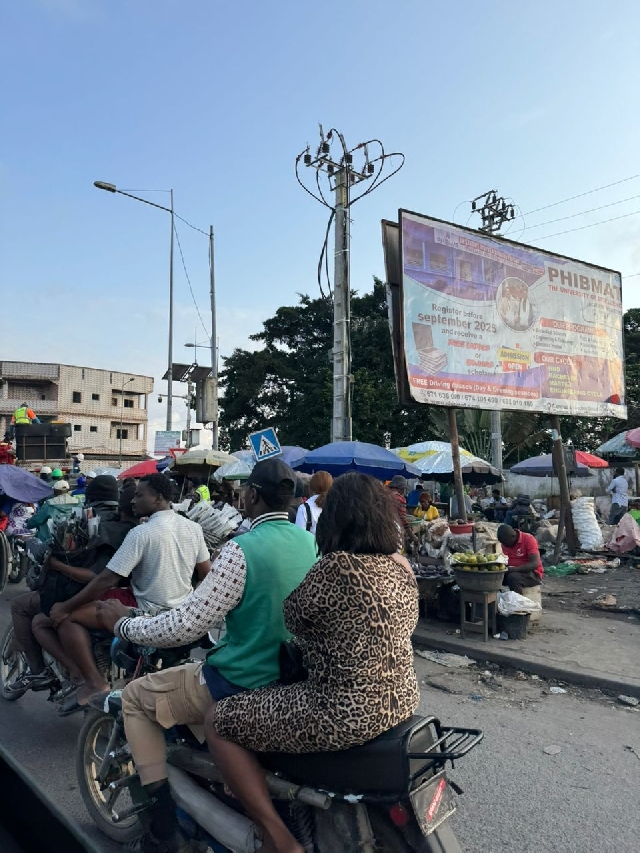
The dedication of officers like Lawrence is a model for the professionalism required for a visa-free Africa, where border officials facilitate rather than hinder movement.
Yet, the actions of some corrupt officers undermine this vision. The demand for unofficial payments, like the 50,000 CFA note, reflects a broader issue of petty corruption at border posts.
For me, indiscipline and petty corruption at border posts are a betrayal of the African unity I champion. All we are seeking is a seamless cross-border movement for Africans within five years. The lack of accountability— where no receipts are issued, no official stamps—demands urgent reform.
Cameroon’s government must enforce stricter oversight and training to align with the African Union’s vision of open borders, since free movement boosts economic and cultural ties.
The Path to a United Africa
Cameroon’s beauty, from the vibrant hills of Kumba to the promise of its people, makes it a cornerstone of African unity, but its border challenges highlight the need for systemic change.
Visa-free travel requires professional officers trained to treat travelers with respect, not suspicion, and infrastructure like well-maintained roads and digital systems to streamline entry. Countries like Rwanda and Mauritius, ranked high on the Africa Visa Openness Index, offer models for simplified entry processes, such as accepting e-visas at all borders or implementing biometric systems, as seen in Gabon.
Cameroon could adopt similar measures, leveraging projects like the Enugu-Bamenda Highway to enhance connectivity.
The Trans African Tourism and Unity campaign’s experience is a microcosm of the broader struggle for a united Africa. The familiarity of Kumba’s lush landscapes strengthens my resolve to dismantle the colonial borders that divide African families. Though we are leaving Cameroon saddened by lost time and productivity, our determination is unshaken.
Cameroon’s potential to lead this movement is immense, but it must address corruption, standardize border procedures, and invest in infrastructure to make travel seamless. Only then can the smiles of its people, the vibrancy of cities like Kumba, and the splendor of its landscapes be matched by an experience that welcomes African travelers as family, not foreigners, across borders that should unite rather than divide
Source: By Ras Mubarak
Trending Features

Seidu Agongo Writes: In the end, it’s the impact that matters, not the position
08:43
Biomechanics: The game-changer for Ghana's football desperately needed
11:18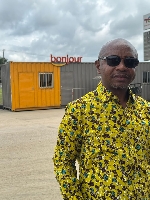
Cameroon’s Promise and Perils: A Journey for African Unity Through Beauty and Bureaucracy
10:17
Equatorial Guinea: A Shining Example of African Progress Amid Western Hypocrisy
10:10
The Gbinyiri crisis-a sad reflection on Ghana
15:33



